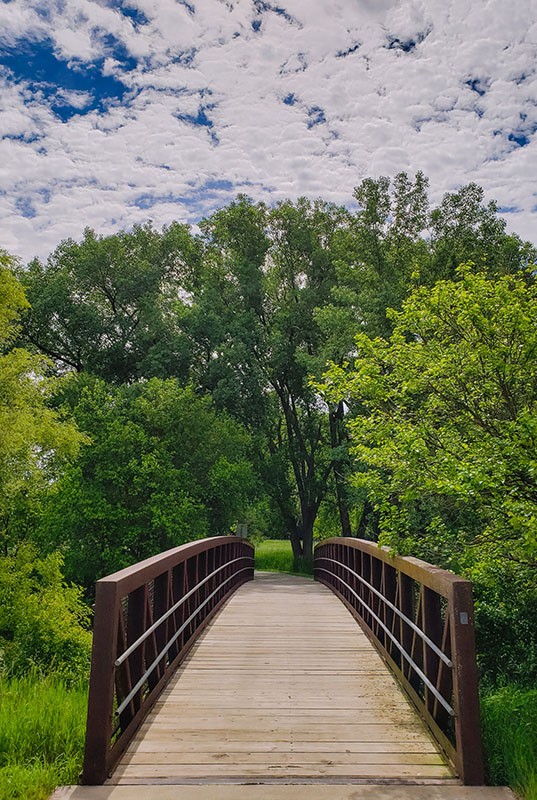notice
Article: The Bridges We Become: International Students and Knowledge Transfer
 International Students, more often than not, act as bridges between their home and host communities. | Credit: Jeffrey Hamilton on Unsplash
International Students, more often than not, act as bridges between their home and host communities. | Credit: Jeffrey Hamilton on Unsplash
What part do we play as International Students for our communities, both those we have back home and those we have created here? How do we understand our role and position as we cross and un-cross borders and boundaries, both tangible and otherwise? How do we share the knowledge systems we have accumulated and created with our communities without valuing one over the other?
As an international graduate student, my situation can only be described as finding my clumsy self with feet in two boats.
The physical distance from my home country puts me out of the sphere of 'events' unfolding back home in real time. It is not uncommon to be reminded of "how much things have changed" since I left, and, as such, I "can't understand the shifts that are taking place." I can't, and won't, deny that these statements hold a kernel of truth (and maybe that's why they sting so bad).
But it is equally valid that my personal history and biography directly influence my research, so maintaining those ties is of utmost importance to me. On the other hand, the hope remains that my newly acquired perspective and skills can be used to make an impact, however small, back home.
And so, I am in a position where I am constantly advocating for my communities - both new and old - their ways of being and thinking while simultaneously sharing perspectives and knowledge across lands and seas. This exchange of ideas remains an essential aspect of the international student experience.
In 2022, back home (finally) to conduct my fieldwork, I had the opportunity to put together a workshop for Art Teachers. Working with art educators, relegated to the bottom of the ladder in Pakistan's educational system, was one of the key initiatives I established during my time as the Head of Educational Programming for the Karachi Biennale. Much of the session this year relied on what I learned through Gradpro Skills Graduate Seminar in University Teaching for Fine Arts. Throughout the workshop, we focused on creating a deeper understanding of the need for assessments, how to design them, and possible ways to mitigate students' expectations regarding evaluations.
On the other hand, I have also made space for my home community and their work in my host country. In conceptualizing and moderating the speaker series titled (Art+Micro) History: Contemporary Artistic Voices from the South in 2021, I intended to make space for artistic practices from Pakistan that operate in highly precarious circumstances.
These flows of knowledge and ideas, the dialogue that I have been able to generate, result from my position as an international student, where I have tried to bring my two realities into conversation with each other. But it has also been a therapeutic way to make my research and 'field' feel less alienating. Conversations like the one mentioned before, or like The Logic of Postcolonial Museums: South Asia Edition, have been critical in foregrounding the difference between working, thinking and accessing spaces, to foreground that our fields are not so different – a feeling I have experienced every time I have filled out an ethics review. Conversing with scholars who share a similar worldview and can understand my context without needing a background explainer has been a way of creating space for myself and my work.
More importantly, as was recently witnessed, during times of crisis back home, international students use their voices to amplify the tragedies that unfold back home.
At other times, we act as moral compasses.
We become mediators, and bridges, allowing for connections and the flow of information, knowledge, and ideas in multiple directions.